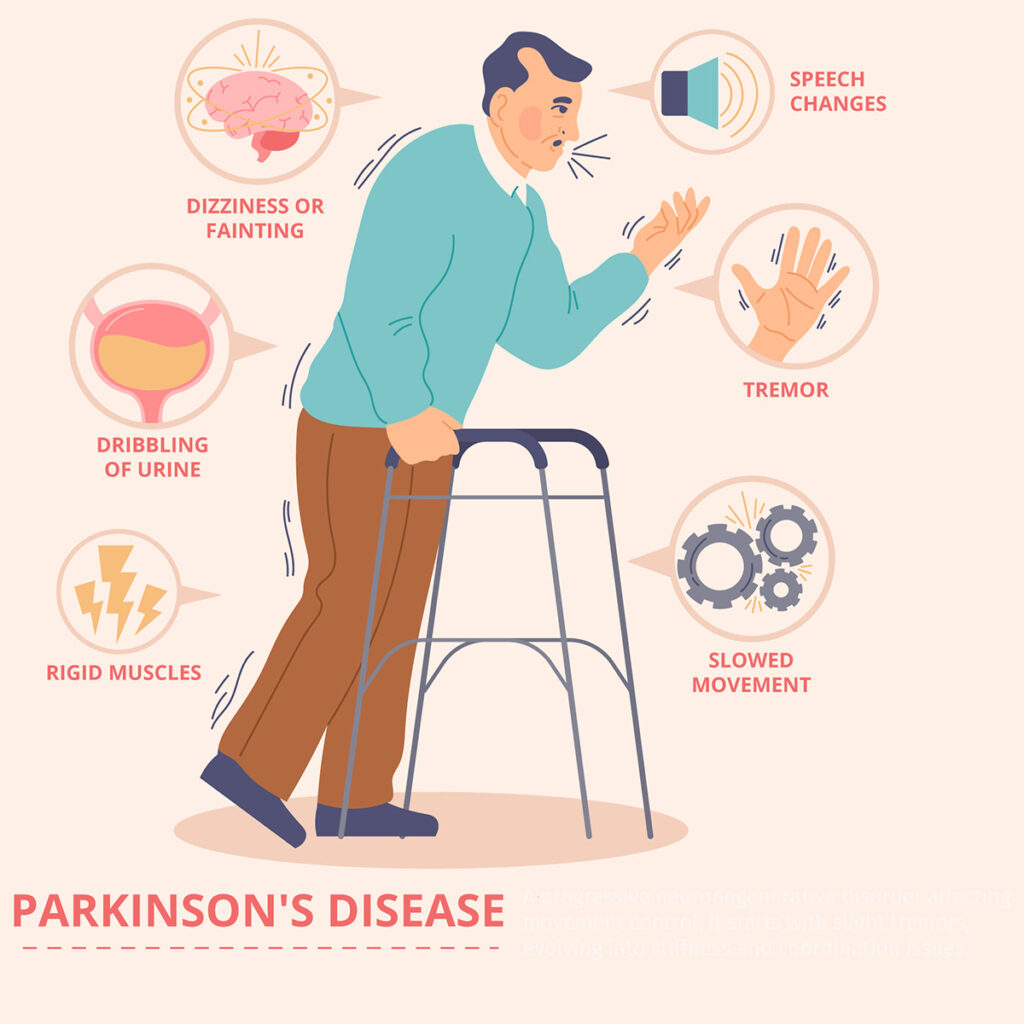A buzzing or vibrating sensation in your chest could be a sign of possible health concerns like anxiety, gallbladder issues, lung problems, or heart diseases. Palpitations may not always signify a serious condition but require a medical evaluation to determine the cause. Underlying health issues such as anxiety, heart, lung, or gallbladder conditions can manifest as a buzzing sensation in the chest.
A buzzing or vibrating feeling in your chest may leave you feeling unsettled, though it often isn’t linked with pain. This sensation is generally referred to as palpitations and may not always indicate a severe health issue.
In many cases, these feelings stem from identifiable and treatable medical conditions. Seeking medical advice is crucial to address any underlying problems and alleviate the discomfort you’re experiencing.
Whether the sensation resembles the subtle buzz of a cellphone or feels more intense, understanding the causes is the first step toward resolution.
It’s particularly essential when the cause relates to anxiety, pulmonary issues, cardiac anomalies, or conditions related to the gallbladder.
While some buzzing sensations dissipate on their own, others may be warning signs of more serious health implications, making medical consultation imperative.
What causes a buzzing or vibrating feeling in my chest?
1. Problem with your nervous system
A nervous system disease may cause the vibrating feeling you are experiencing in your chest.
Some nervous system diseases cause tremors in the chest, which feel like a buzzing or vibration in the left side of the chest.
These diseases include Parkinson’s, Multiple sclerosis, and Essential Tremors.
1a. Parkinson’s disease

The following symptoms may accompany this condition as a nervous system condition:
- A hoarse and quiet voice
- Lost sense of smell
- Small handwriting
- A mask-like severe look on the face
- Dizziness
- Constipation
- Difficulty sleeping
1b. Essential tremors
Another nervous system disease is essential tremors. This condition will be associated with other symptoms like the following:
- Small involuntary movements on the arms and legs
- Twitching on the face and eyelids
- A quivering voice
- Trouble finding your balance
- Troubled writing
1c. Multiple Sclerosis
Other symptoms of this disease include the following:
- Numbness on the legs, arms, face, and body
- Fatigue
- Stiffness
- Blurred vision
- Difficulty controlling bowel movements and urine
- Depression
You should visit your doctor and get a diagnosis if you experience any of the above symptoms.
Prior history with these or other nervous system diseases may cause the vibrating feeling in your chest as the heart gets excited, causing it to palpitate.
Visit your doctor and get immediate and proper medication for these diseases.
2. Anxiety
Although worry and fear accompany us before significant events, sometimes these feelings may bother us.
When you worry and panic for no apparent reason, you may be experiencing an anxiety disorder.
This uncontrolled feeling of worry at times may cause heart palpitations which may come out as a vibrating feeling in our chest.
Anxiety disorder comes with other underlying problems like stress and depression.
Excess anxiety may cause panic attacks and excessive fear of probable death.
When it gets to this state, then your mental health gets compromised.
You may experience anxiety due to the following reasons:
- A family history of mental health conditions may trigger anxiety. Some conditions like OCD, which may run through family history, come with an increased risk of anxiety disorder.
- Acute stress disorder
- Other ailments like asthma, thyroid issues, heart disease, or diabetes
- Substance abuse
As you experience anxiety, other brain functions may affect your respiratory and circulation processes.
This imbalance, in return, causes increased heart rate and the feeling of chest vibrations.
Did you know that these symptoms will spread to the ribcage, diaphragm, and heart area?
This feeling may occur after the occurrence of other anxiety symptoms. At other times, it may appear on its own.
The buzzing feeling may change in intensity; it may occur all the time or at a specific time.
By calming yourself after a stress response, you may slow down the buzzing feeling from anxiety tremors. It may take over ten minutes, but these tremors should not be alarming.
You must talk with a professional therapist about your complex anxiety disorder recovery.
This therapy will help if you don’t control the anxiety triggers. For extreme cases, you may get some drug prescriptions to assist in calming you down.
3. It could be lung failure
Did you know that you may experience this buzzing or vibrating feeling in your chest with a severe lung problem?
The lungs serve a vital function in the body to facilitate gaseous exchange to the body.
They facilitate the movement of oxygen into the blood and the removal of carbon dioxide from the blood, a process called respiration.
At times, these essential organs may experience failure, which adversely leads to reduced gaseous exchange.
If they are responsible for the buzzing feeling, you will experience the vibrations on the left or right side of the chest.
Although rare, if both lungs collapse, you may experience this feeling on both sides.
If the lungs have a problem or fail, you may experience vibration or buzz in your chest cavity.
The problem, often called “lung collapse,” proves life-threatening, mainly if it affects both lungs.
“Lung collapse” or lung failure occurs when the lungs stop functioning as intended.
Therefore air leakage occurs from the lungs to the chest wall.
The air thus beats against the diaphragm causing the vibrating effect you experience in your chest.
This condition requires urgent medical attention, and you should see a doctor immediately.
Other symptoms of lung failure include:
- Decrease in blood pressure
- Flared nostrils
- Fatigue
- The skin may turn blue due to poor circulation of oxygen in the blood
- Increased heart rate
Quick and timely medical attention will improve the situation.
4. Gallbladder infection
When your gallbladder gets infected, it often results in gallbladder inflammation. Antibiotics and gallbladder removal serve to cure this feeling.
Other associated symptoms of this disease include the following:
- Pain in the abdomen that spreads to the right chest area or back
- Nausea
- Fever
- A tender region above the abdomen
- Vomiting
5. Heart problems
Have you ever wondered, ‘Why does my heart feel like it’s vibrating?’. If you experience this vibrating feeling more often on your left chest area under your breast, you may have some common heart problems.
Heart problems that cause these tremors may range from non-serious ones like palpitations to severe heart problems like heart attacks.
Some common heart problems associated with a buzzing feeling in the chest or a vibrating feeling in the chest near the heart include the following:
6. Atrial fibrillation
This condition occurs when the heart’s upper chambers don’t sync with the lower chambers. In return, this imbalance creates an irregular heartbeat which may cause chest vibrations.
Other symptoms include the following:
- Chest pain
- Heart palpitations
- Difficulty breathing
- Confusion
- Weakness
If your doctor diagnoses you with this heart condition, they will walk with you on an appropriate treatment plan.
7. Heart attack
The symptoms of a heart attack cause anxiety in many patients.
When anxiety levels go high, you may experience a buzzing feeling in your chest with other associated symptoms like shortness of breath and sharp pain in your left side.
You will require emergency medical attention if it happens to be a heart attack.
You should call an emergency healthcare line immediately if you feel the symptoms.
Other symptoms include the following:
- Indigestion
- Sweating
- Nausea
- Vomiting
- Irregular and fast heartbeat
If you experience these symptoms, conduct an emergency health service since you may require urgent medical attention.
You should see a doctor once you experience abnormal chest vibrations since most heart conditions require urgent medical attention.
What other conditions may lead to a buzzing feeling in the chest?
While some causes of a chest buzzing sensation are harmless, it’s important to be aware that it could be a sign of underlying health issues:
| Respiratory Conditions | Gastrointestinal Issues | Cardiovascular Concerns |
|---|---|---|
| Bronchitis | Indigestion | Precordial catch syndrome |
| Asthma | GERD | Heart cancer |
| Pleurisy | Lung cancer |
Should you notice persistent vibrations or tremors in your chest, alongside symptoms like dizziness, balance issues, or weakness, these could be neurological symptoms associated with:
- Multiple sclerosis
- Parkinson’s disease
- Essential tremor
Lung-related conditions such as a cough from a cold, bronchitis, or even lung tumors can also cause this feeling.
Seeking medical evaluation is crucial, as internal vibrations could indicate serious conditions requiring treatments like deep brain stimulation when linked to neurological disorders.
FAQs
Why do I get a buzzing sensation in my body?
Buzzing sensations in your body can be due to issues within the nervous system.
Conditions like multiple sclerosis or Parkinson’s disease have been known to cause sensory disturbances, including such sensations.
Dietary imbalances or lifestyle factors may also play a role in impacting neurological health and function.
Can anxiety cause vibratory sensations?
Yes, anxiety can manifest physically, producing vibratory sensations in your chest.
Elevated stress can trigger a release of adrenaline, resulting in symptoms that include chest vibrations.
To integrate beneficial lifestyle changes, consider stress-reducing activities and ensure a balanced diet to support overall well-being.
What does an internal tremor feel like?
An internal tremor typically presents as a subtle shaking or buzzing inside your body, akin to a silent vibrator.
If you experience these sensations, it’s imperative to seek medical attention for a proper evaluation, as they can impact your daily life and could be symptomatic of a larger issue.
What are some potential cardiac causes of a chest vibration feeling?
– Coronary artery spasm: This temporary constriction can lead to angina and potentially disruptive blood flow to the heart.
– Pneumothorax: A collapsed lung might create a sensation of vibration in addition to chest pain.
– Heart palpitations: Can often feel like a buzzing or vibrating.
Can certain medications cause a vibrating or shaking sensation in the breast or chest?
Yes, here are some examples below.
– Stimulants: These include caffeine, nicotine, amphetamines, and certain cold medications.
– Bronchodilators: Often used for asthma, these can cause tremors or sensations of vibrating.
Should I be concerned about a continuous shaking or buzzing feeling in my chest?
Persistent or recurrent sensations of vibrating or buzzing in the chest should be evaluated by a healthcare professional, especially if accompanied by other symptoms like chest pain, shortness of breath, or dizziness.
References
- https://www.mayoclinic.org/diseases-conditions/angina/expert-answers/coronary-artery-spasm/faq-20058316
- https://medlineplus.gov/ency/article/000087.htm#:~:text=A%20collapsed%20lung%20occurs%20when,of%20this%20condition%20is%20pneumothorax.
- https://www.medicalnewstoday.com/articles/324354
- https://www.whiteswanfoundation.org/disorders/anxiety-and-related-disorders/obsessive-compulsive-disorder-ocd?gclid=CjwKCAjw9J2iBhBPEiwAErwpealuUTV6qaFHfqgyZYm7Xy3gAjg-6mVExPrTohzMnCpooBHRgEENvhoCfU0QAvD_BwE
- https://www.anxietycentre.com/anxiety-disorders/symptoms/stress-response/
- https://www.healthline.com/health/anxiety
- https://www.healthdirect.gov.au/nervous-system-diseases
- https://www.healthdirect.gov.au/parkinsons-disease
- https://www.healthdirect.gov.au/multiple-sclerosis-ms
- https://www.healthline.com/health/multiple-sclerosis/ms-fatigue


